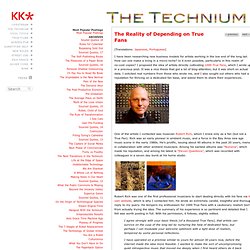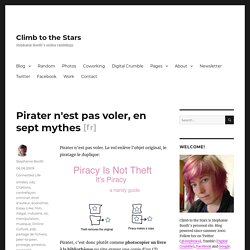

The Reality of Depending on True Fans. I have been researching new business models for artists working in the low end of the long tail.

How can one make a living in a micro-niche? Is it even possible, particularly in this realm of no-cost copies? I proposed the idea of artists directly cultivating 1000 True Fans, which I wrote up in a previous post. It was a nice thesis that got a lot of blog-attention, but it was short on actual data. I solicited real numbers from those who wrote me, and I also sought out others who had a reputation for thriving on a dedicated fan base, and asked them to share their experiences. Robert Rich was one of the first professional musicians to start dealing directly with his fans via his own website, which is why I contacted him. I am deeply grateful to Robert for his generous and courageous disclosure of his real-life finances. The Case Against 1000 True Fans. [Translations: Japanese, Portuguese] My 1000 True Fans post provoked much discussion on other blogs.

One blogger mentioned in passing that Brian Austin Whitney had suggested a very similar idea a few years ago. I had not heard Whitney, nor his proposition, and I missed this reference while researching, but I am impressed with how convergent our ideas are. Whitney organized Just Plain Folks, a community for independent artists. Writing on New Year’s Eve 2004, Whitney said, I have a notion that we’re turning a corner (or experiencing a swing in the pendulum) where an artist who focuses on a smaller number of fans and serves them with a high level of direct interaction and communication will be the new model for success, even in the face of new technology and the shift in old school music business procedures. Four months later, on tax day, blogging musician Scott Andrew picked up Whitney’s notion and expanded on it under the title of 5000 Fans.
Pirater n’est pas voler, en sept mythes — Climb to the Stars. Pirater n’est pas voler.

Le vol enlève l’objet original, le piratage le duplique: Pirater, c’est donc plutôt comme photocopier un livre à la bibliothèque ou vite graver une copie d’un CD qu’on nous a prêté. Je suis atterrée de voir à quel point le lavage de cerveau opéré par la grosse machine a faire du fric de l’industrie du film et de la musique a été efficace: nombre de personnes dans mon entourage avalent tout rond l’affirmation selon laquelle le téléchargement d’oeuvres protégées par le droit d’auteur est un crime comparable (si ce n’est pire!) À aller se servir dans le porte-monnaie des artistes. Ce n’est pas gagné d’avance: le lavage de cerveau à fonctionné — à force de répéter les choses, les gens finissent par y croireles raisonnements et les statistiques n’ont que peu de poids face à un adversaire qui manipule l’émotionnella loi reste la loi, et le non-respect du droit d’auteur est illégal.
Mais ne nous décourageons pas. Mythe #1: “pirater, c’est voler” Tim O’Reilly David Weinberger.